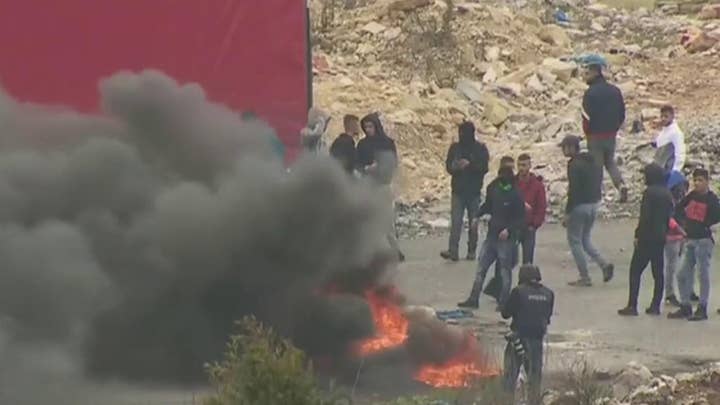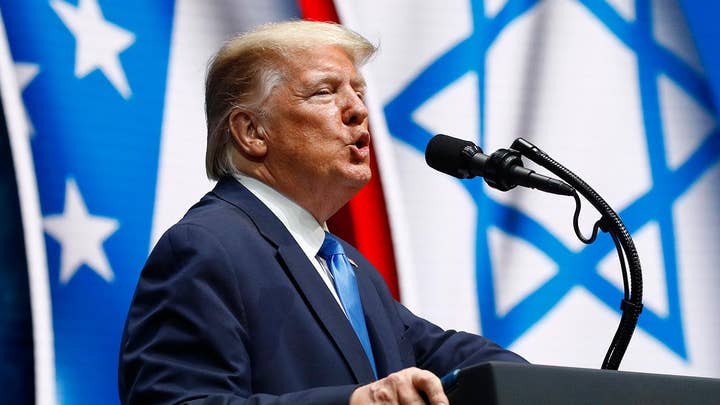Trump says his administration's Middle East peace plan is fundamentally different from past proposals
President Trump holds joint news conference with Israeli Prime Minister Netanyahu to announce new Mideast peace plan.
Just minutes after announcing his administration’s Middle East peace plan, President Trump tweeted out a conceptual map of the region that includes what a future state of Palestine could look like.
“This is what a future State of Palestine can look like, with a capital in parts of East Jerusalem,” Trump tweeted following his announcement alongside Israeli Prime Minister Benjamin Netanyahu.
WHAT'S IN TRUMP'S MIDDLE EAST PEACE PLAN?
The plan more than doubles the territory currently under Palestinian control and sets up a capital for the proposed country in East Jerusalem, although it also recognizes Israeli sovereignty over major settlement blocs in the West Bank, something to which the Palestinians will almost certainly object. The Palestinians have already rejected the proposal, accusing Trump of being biased in favor of Israel as he has adopted policies that bolster Israel at their expense.
TRUMP TOUTS PEACE PLAN FOLLOWING MEETING WITH NETANYAHU DESPITE PALESTINIAN OBJECTIONS
The plan does call for a four-year freeze in new Israeli settlement construction, during which time details of a comprehensive agreement would be negotiated. However, it was not immediately clear if the freeze could be extended if a final deal is not concluded in the four years.
The Palestinians see the West Bank as the heartland of a future independent state and east Jerusalem as their capital. Most of the international community supports their position, but Trump has reversed decades of U.S. foreign policy by siding more blatantly with Israel. The centerpiece of his strategy was recognizing Jerusalem as Israel’s capital and moving the American Embassy there. He's also closed Palestinian diplomatic offices in Washington and cut funding to Palestinian aid programs.
CLICK HERE FOR THE FOX NEWS APP
Those policies have proven popular among Trump’s evangelical and pro-Israel supporters and could give him a much-needed boost from his base as he gears up for a reelection battle this year. But the Palestinians refuse to even speak to Trump and they called on support from Arab leaders.
The Palestinian leadership also has encouraged protests in the West Bank, raising fears that the announcement in Washington could spark a new round of violence. Ahead of the announcement, the Israeli military said it was reinforcing infantry troops along the Jordan Valley.
The Associated Press contributed to this report.














































